United Nations General Assembly Resolution 498 (V)
| UN General Assembly Resolution 498 | |
|---|---|
| Date | February 1st 1951 |
| Meeting no. | 327 |
| Code | A/RES/498 (V) (Document) |
| Subject | Intervention of the Central People's Government of the People's Republic of China in Korea |
Voting summary |
|
| Result | Adopted |
| Part of a series on |
| North Korea and the United Nations |
|---|
  |
The United Nations General Assembly resolution 498 was approved on February 1, 1951, in response to the intervention of Chinese Communist troops in Korean War.
It was the first time in which United Nations treated a nation as an aggressor.[1]
Background
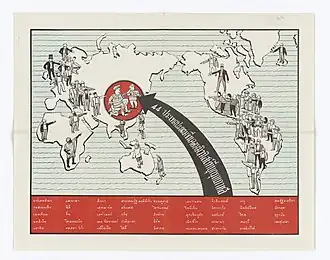
In late 1950, hundreds of thousands of Chinese Communist troops crossed into North Korea to help the troops of the Democratic People's Republic of Korea to fight the coalition led by United States and the Republic of Korea.[1]
The General Assembly vote followed unsuccessful attempts by the U.S. delegation to the United Nations to have the Security Council take action against the Chinese Communists. Exercising his nation's veto power, the Soviet representative on the Security Council consistently blocked the U.S. effort. Turning to the General Assembly, the U.S. delegation called for the United Nations to condemn communist China as an aggressor in Korea.[1]
The resolution in few words
The resolution had 3 main points:[2]
- The aggression of the People's Republic of China is condemned
- The Chinese troops are exhorted to leave Korea
- The United Nations member states are exhorted to continue supporting the U.N. troops in Korea
The voting in detail
For
 Argentina
Argentina.svg.png) Australia
Australia.svg.png) Belgium
Belgium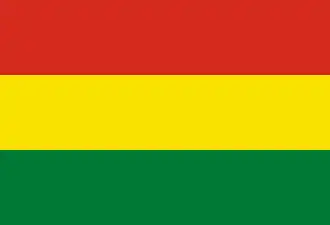 Bolivia
Bolivia.svg.png) Brazil
Brazil.svg.png) Canada
Canada Chile
Chile China
China Colombia
Colombia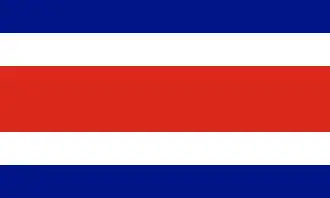 Costa Rica
Costa Rica Cuba
Cuba Denmark
Denmark Dominican Republic
Dominican Republic.svg.png) Ecuador
Ecuador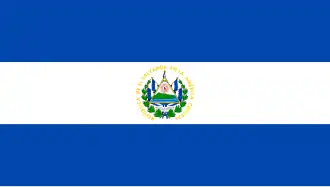 El Salvador
El Salvador.svg.png) Ethiopia
Ethiopia France
France.svg.png) Greece
Greece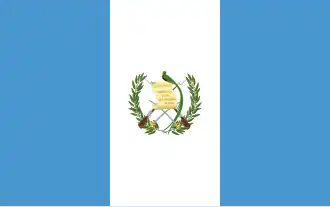 Guatemala
Guatemala.svg.png) Haiti
Haiti.svg.png) Honduras
Honduras Iceland
Iceland.svg.png) Iran
Iran.svg.png) Iraq
Iraq Israel
Israel Lebanon
Lebanon Liberia
Liberia Luxembourg
Luxembourg Netherlands
Netherlands New Zealand
New Zealand Nicaragua
Nicaragua Norway
Norway Panama
Panama Paraguay
Paraguay Peru
Peru.svg.png) Philippines
Philippines Thailand
Thailand Turkey
Turkey.svg.png) Union of South Africa
Union of South Africa United Kingdom of Great Britain and Northern Ireland
United Kingdom of Great Britain and Northern Ireland.svg.png) United States of America
United States of America Uruguay
Uruguay.svg.png) Venezuela
Venezuela
Against
Abstentions
Aftermath
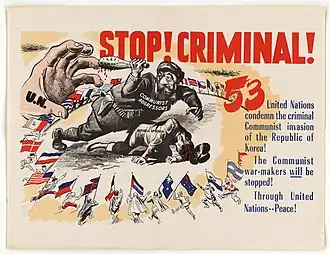
The action was largely symbolic, because many nations were reluctant to take more forceful action against the People's Republic of China for fear that the conflict in Korea would escalate. While economic and political sanctions could have been brought against Red China, the United Nations decided to take no further action. The Korean War continued for 2 more years, finally ending in a stalemate and an armistice in 1953.[1]
See also
References
- ^ a b c d "This day in History: U.N. condemns PRC for aggression". A&E Television Networks. 2009. Retrieved 2 April 2015.
- ^ "A/RES/498 (V)" (PDF). United Nations. Archived from the original (PDF) on 4 April 2015. Retrieved 2 April 2015.
- ^ "The Question of Korea". Yearbook of the United Nations 1951. New York City: United Nations. 1951. p. 224. OCLC 867230999. Retrieved 2 April 2015.